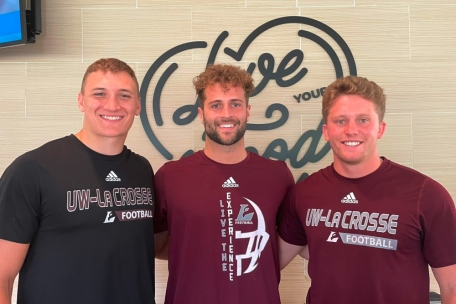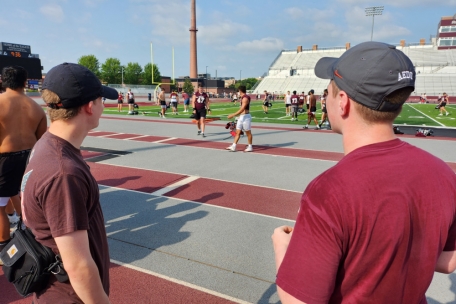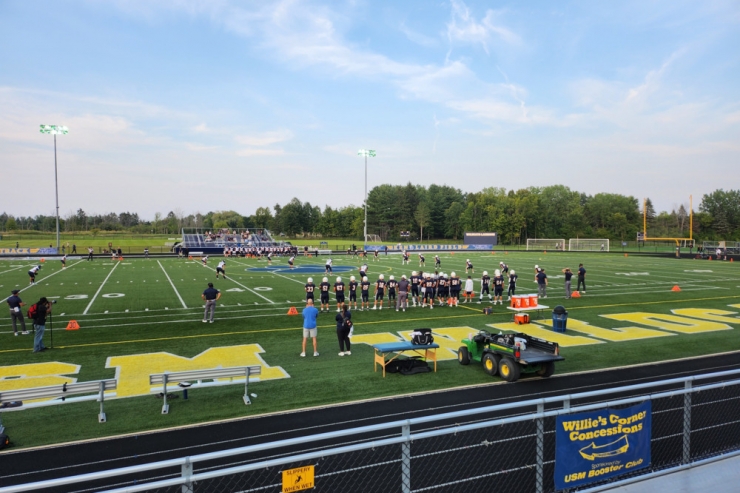Ryan Daines, Keyser Helterband and Brant Bohman, who are Division 3 football players at the University of Wisconsin La Crosse, gave further insight into the life of a student athlete. All three young men started playing sports almost as soon as they started elementary school and it’s been a big part of their lives ever since.
Sports have always played a significant role in their lives. Not only is it a great way to make friends but it’s also a place where they can learn important life lessons, like how to work together as a team. „I feel really comfortable when I’m out playing sports with my friends“, says Keyser Helterband, the quarterback of the University’s varsity team.
Football obviously has a special place in their hearts since they have not only played it for around 15 years, but it also played a role in deciding what colleges they ended up going to. Upon being asked what made them stick with football, Ryan Daines said: „Football has just always been my favorite sport. Not only because of the physicality, but also because of the fact that you need eleven guys to make the team work.“

Impressed by success
When people hear that they are Division 3 football players on a collegiate level, their first instinct is to be impressed since the academic success of college athletes has to be balanced with their athletic responsibilities, which creates an enormous pressure on the athletes. One way to gain said balance is to take the least amount of courses and credits needed during the short season of the relative sport they play and then catch up on their classes during the rest of the year.
However, Brant Bohman says that „it is a pressure you want to have since the pressure is there because you are good at something“. Yet the external pressure is not as significant as the internal pressure the three young men thrive on. They obviously do not want to disappoint the fans that fill the stadium during their games, their coaches or teammates and while that is already motivating, the internal pressure and the desire to not only be a good teammate, but rather a good player for themselves is what is ultimately pushing them to hold themselves to higher standards and to thrive at becoming better and better.
Football has not only influenced their social circle and their development, it has also become a part of their identity, partly because people recognize them or judge them based on their influence and success in their field. „When you play a sport for 15 years of your life, it definitely becomes part of you“, says Ryan Daines, the linebacker.
Since football has been a constant part of their daily routine for numerous years, the transition to a life without college sport will certainly not be the easiest and while it is normal for them to feel nervous about the change, hearing how adaptable they are and how good they function under pressure, it is obvious that they will be more than able to deal with the upcoming shift in routine.









Sie müssen angemeldet sein um kommentieren zu können